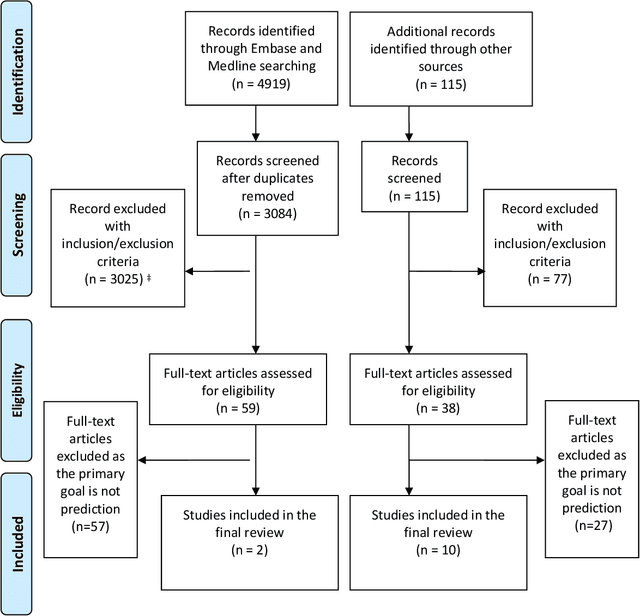David A. Jenkins
Will Large Language Models Transform Clinical Prediction?
May 23, 2025Abstract:Background: Large language models (LLMs) are attracting increasing interest in healthcare. Their ability to summarise large datasets effectively, answer questions accurately, and generate synthesised text is widely recognised. These capabilities are already finding applications in healthcare. Body: This commentary discusses LLMs usage in the clinical prediction context and highlight potential benefits and existing challenges. In these early stages, the focus should be on extending the methodology, specifically on validation, fairness and bias evaluation, survival analysis and development of regulations. Conclusion: We conclude that further work and domain-specific considerations need to be made for full integration into the clinical prediction workflows.
A systematic review of causal methods enabling predictions under hypothetical interventions
Nov 19, 2020

Abstract:Background: The methods with which prediction models are usually developed mean that neither the parameters nor the predictions should be interpreted causally. For many applications this is perfectly acceptable. However, when prediction models are used to support decision making, there is often a need for predicting outcomes under hypothetical interventions. Aims: We aimed to identify and compare published methods for developing and validating prediction models that enable risk estimation of outcomes under hypothetical interventions, utilizing causal inference. We aimed to identify the main methodological approaches, their underlying assumptions, targeted estimands, and possible sources of bias. Finally, we aimed to highlight unresolved methodological challenges. Methods: We systematically reviewed literature published by December 2019, considering papers in the health domain that used causal considerations to enable prediction models to be used to evaluate predictions under hypothetical interventions. We included both methodology development studies and applied studies. Results: We identified 4919 papers through database searches and a further 115 papers through manual searches. Of these, 87 papers were retained for full text screening, of which 12 were selected for inclusion. We found papers from both the statistical and the machine learning literature. Most of the identified methods for causal inference from observational data were based on marginal structural models and g-estimation.
 Add to Chrome
Add to Chrome Add to Firefox
Add to Firefox Add to Edge
Add to Edge